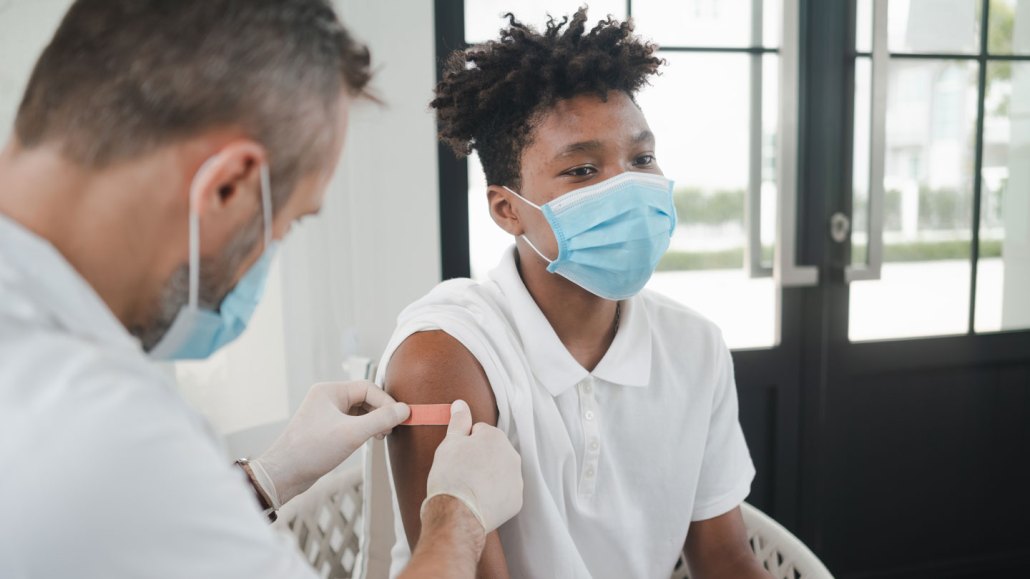bacteria: (singular: bacterium) Single-celled organisms. These dwell nearly everywhere on Earth, from the bottom of the sea to inside other living organisms (such as plants and animals). Bacteria are one of the three domains of life on Earth.
bacterial: Having to do with bacteria, single-celled organisms. These dwell nearly everywhere on Earth, from the bottom of the sea to inside animals.
bug: The slang term for an insect. Sometimes it’s even used to refer to a germ. (in computing) Slang term for a glitch in computer code, the instructions that direct the operations of a computer.
COVID-19: A name given to the disease that erupted into a massive global pandemic in 2020. It first emerged in 2019 and is caused by a new coronavirus known as SARS-CoV-2. Symptoms can include pneumonia, trouble breathing, feeling too tired to walk more than a few steps, fever, headaches, low blood-oxygen levels, blood clots and brain “fog.”
diarrhea: (adj. diarrheal) Loose, watery stool (feces) that can be a symptom of many types of microbial infections affecting the gut.
E. coli: (short for Escherichia coli) A common bacterium that researchers often harness to study genetics. Some naturally occurring strains of this microbe cause disease, but many others do not.
fungi: (sing: fungus) Organisms with one or more cells that reproduce via spores and feed on living or decaying organic matter. Examples include mold, yeasts and mushrooms.
fungus: (plural: fungi) One of a group of single- or multiple-celled organisms that reproduce via spores and feed on living or decaying organic matter. Examples include mold, yeasts and mushrooms.
germ: Any one-celled microorganism, such as a bacterium or fungal species, or a virus particle. Some germs cause disease. Others can promote the health of more complex organisms, including birds and mammals. The health effects of most germs, however, remain unknown.
immune: (adj.) Having to do with immunity. (v.) Able to ward off a particular infection. Alternatively, this term can be used to mean an organism shows no impacts from exposure to a particular poison or process. More generally, the term may signal that something cannot be hurt by a particular drug, disease or chemical.
immune system: The collection of cells and their responses that help the body fight off infections and deal with foreign substances that may provoke allergies.
infection: A disease that can spread from one organism to another. It’s usually caused by some type of microbe.
infectious: An adjective that describes a type of microbe or virus that can be transmitted to people, animals or other living things.
Lyme disease: A disease caused by the bacterium Borrelia burgdorferi. It can be carried by blacklegged ticks and can be spread to people through their bite. Symptoms can include headache, fever, a bullseye-shaped skin rash and being very tired. If it is not treated early with antibiotics, the infection can move into heart, joints and nervous system.
malaria: A disease caused by a parasite that invades the red blood cells. The parasite is transmitted by mosquitoes, largely in tropical and subtropical regions.
measles: A highly contagious disease, typically striking children. Symptoms include a characteristic rash across the body, headaches, runny nose, and coughing. Some people also develop pinkeye, a swelling of the brain (which can cause brain damage) and pneumonia. Both of the latter two complications can lead to death. Fortunately, since the middle 1960s there has been a vaccine to dramatically cut the risk of infection.
nausea: The feeling of being sick to one's stomach, as though one could vomit.
parasite: An organism that gets benefits from another species, called a host, but doesn’t provide that host any benefits. Classic examples of parasites include ticks, fleas and tapeworms.
pathogen: An organism that causes disease.
rabies: A virus that is transmitted from mammals such as bats, raccoons, skunks and dogs — sometimes to people. Rabies is found on every continent except Antarctica, and is spread by contact with the saliva of an infected host. A vaccine exists. Without a vaccination, nearly every infected person will die.
Salmonella: A genus of bacteria that can cause disease in people and animals.
symptom: A physical or mental indicator generally regarded to be characteristic of a disease. Sometimes a single symptom — especially a general one, such as fever or pain — can be a sign of any of many different types of injury or disease.
tick: A small eight-legged blood-sucking arthropod, related to spiders and mites. Although they look like bugs, these are not insects. They attach themselves to the skin of their host and feed on their blood. But in the process, they may spread any germs that could have been present in the blood of an earlier host.
vaccine: (v. vaccinate) A biological mixture that resembles a disease-causing agent. It is given to help the body create immunity to a particular disease. The injections used to administer most vaccines are known as vaccinations.
virus: Tiny infectious particles consisting of genetic material (RNA or DNA) surrounded by protein. Viruses can reproduce only by injecting their genetic material into the cells of living creatures. Although scientists frequently refer to viruses as live or dead, in fact many scientists argue that no virus is truly alive. It doesn’t eat like animals do, or make its own food the way plants do. It must hijack the cellular machinery of a living cell in order to survive.

